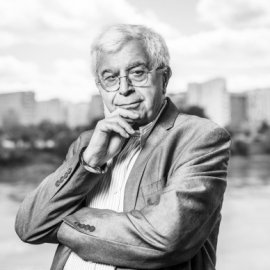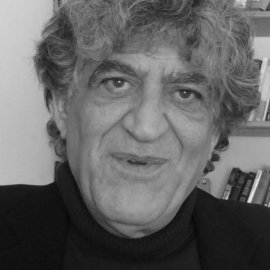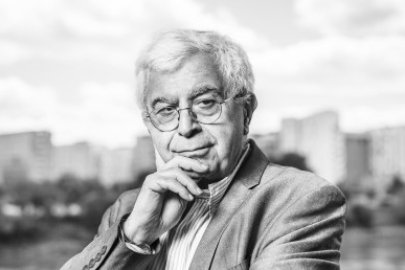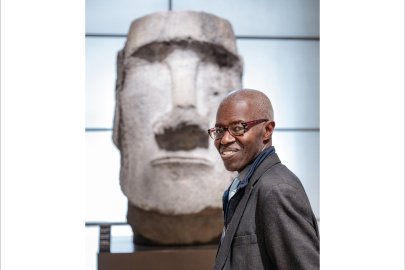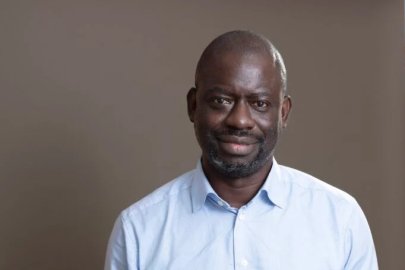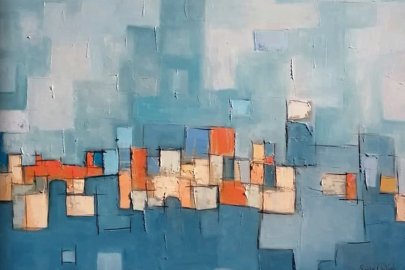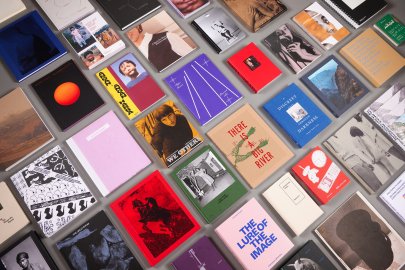Lebanese writer and intellectual of international renown, Elias Khoury (1948–2024) was an associate fellow of the Institute for Advanced Studies in Nantes. Throughout his life, he was deeply committed to Palestine and to the causes of justice, leaving a profound mark on contemporary Arabic literature with a body of work that is both sensitive and political. On 2 October 2025, a study day was held at the Institute for Research and Study on the Arab and Muslim Worlds (Aix-Marseille University / CNRS) in his honor, paying tribute to his thought and intellectual legacy.
Author of major works such as Gate of the Sun (Bāb al-Shams) and Children of the Ghetto: My Name is Adam, Elias Khoury made literature into a space of resistance, memory, and critical reflection on the history and future of Palestine. His writings, translated into many languages, helped bring Palestinian voices to the international stage and challenged dominant narratives.
Elias stayed several times at the Institute in Nantes, where, together with his friend, the Israeli sociologist Yehouda Shenhav-Sharabani, he developed a research project on literature and translation in contexts of conflict and colonial oppression. His time at the Institute remains a significant moment of intellectual dialogue, in keeping with the spirit of an institution that welcomes scholars and writers from around the world each year.
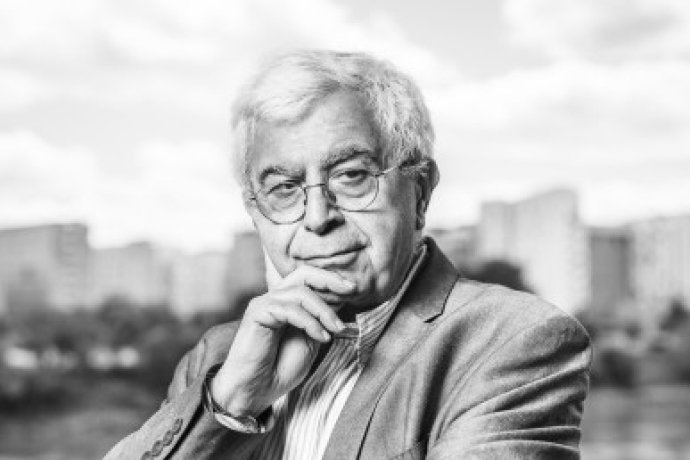
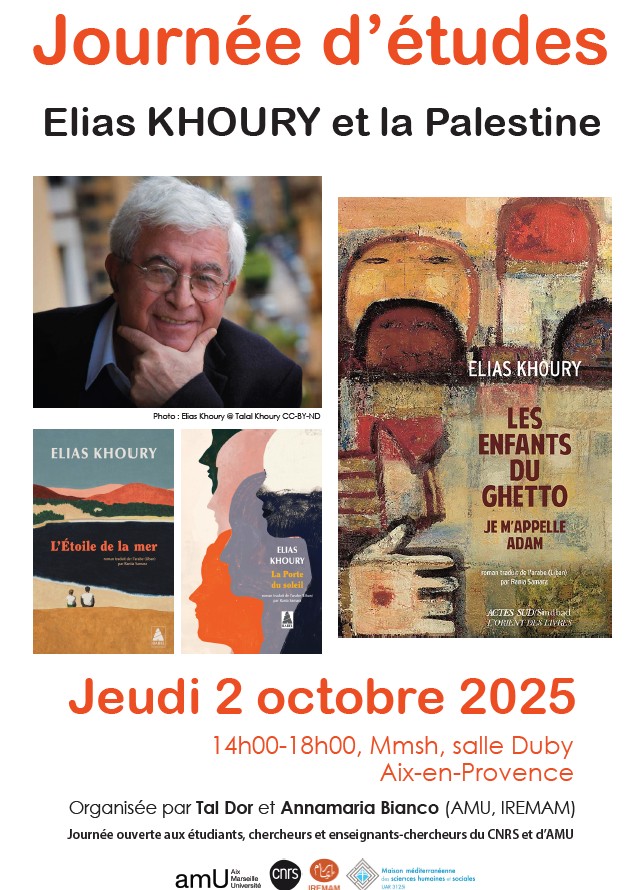
PROGRAMME OF THE STUDY DAY
2:00 – 3:30 pm – Reading workshop on Elias Khoury’s novel Children of the Ghetto: My Name is Adam (Ismī Adam)
Actes Sud/Sindbad (2018). Originally published in Arabic in 2016 by Dar al-Adab (Beirut), the novel was translated into French by Rania Samara and published by Actes Sud/Sindbad in 2018 (368 p.).
The session will take the form of a book club or informal discussion, held in French and Arabic. It will be led by Susanne Abou Ghaida, research associate at IREMAM.
3:30 – 3:45 pm – Break
3:45 pm – Welcome remarks by Vincent Geisser, Director of IREMAM
3:45 – 6:00 pm – Roundtable: Decolonizing Knowledge Production on Palestine with Elias Khoury
Moderator: Richard Jacquemond
- Yousef ALQEDRA – “Reflections on Identity and Memory”
Yousef Alqedra is a poet and researcher in Arabic literature. A recipient of the PAUSE program for scholars at risk, he arrived in Marseille in April 2025. In an interview with Gwenaëlle Lenoir for Mediapart, he reflected on what genocidal war does to language and words.
- Raef ZREIK – “Scheherazade: Elias Khoury Overcoming Guilt”
For Elias Khoury, both words and writing were approached with skepticism; he often felt that true reality resided in action, to the point of feeling guilty as a writer who “plays with words.” Yet at times, he was equally skeptical of action itself. Scheherazade embodied the solution for Khoury.
Raef Zreik is a Palestinian jurist and philosopher, specializing in political philosophy and the philosophy of law. His work focuses on legal and political theory, citizenship and identity, Zionism, and the Palestinian question. His publications include “The Ethics of the Intellectual” (Philosophy and Social Criticism, 2020), “War and Self-defense” (Analyse und Kritik, 2024), “Zionism and Political Theology” (Political Theology, 2023), and the monograph Kant’s Struggle for Autonomy (Lexington Books, 2023).
- Sadia AGSOUS – “When Elias Khoury Anchors Arabic Literature in the Grammar of the Nakba al-Mustamira”
Sadia Agsous-Bienstein is Associate Professor at Sorbonne Nouvelle University. A specialist in cultural studies in the MENA region, her research spans Arabic and Hebrew-Israeli literatures and cultures, translation studies, and modern Arab thought, with a focus on Arab-Jewish relations in Palestine and Palestinian cultural archives before 1948. Her most recent book examines Palestinians in Israel, focusing on the Palestinian novel written in Hebrew and repositioning it within the tradition of resistance literature as conceptualized by Ghassan Kanafani. Her forthcoming book explores Arab intellectuals and writers’ engagement with European antisemitism and the Holocaust.
